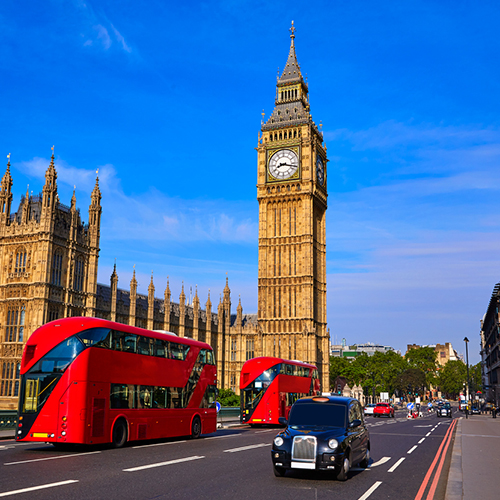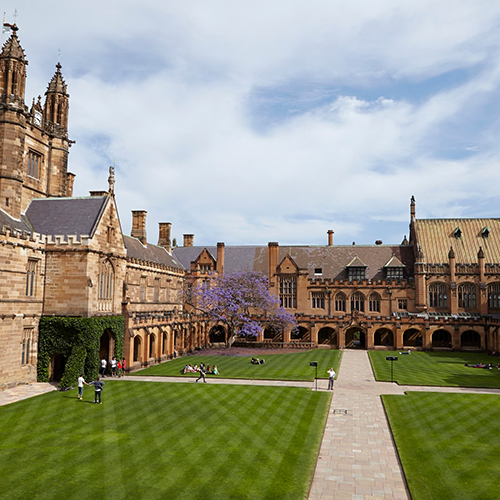



▪ The time zone in the UK is Greenwich Mean Time (GMT), the same as Coordinated
Universal Time (UTC)
▪ Daylight Saving Time (DST) is observed. The clocks go forward by one hour the last
Sunday in March. On the last Sunday in October the clocks go back by one hour. The
time zone in the intervening months is called British Summer Time (BST)
▪ BST is equivalent to GMT +1/UTC +1
▪ The United Kingdom comprises England, Scotland, Wales and Northern Ireland. All
countries in the UK use GMT/BST.

▪ London
▪ Edinburgh
▪ Manchester
▪ Glasgow
▪ Coventry
▪ Newcastle Upon Tyne
▪ Birmingham
▪ Bristol
▪ Nottingham
▪ Leeds

▪ Do stand in Line
▪ Do say “Excuse me”
▪ Do pay as you Go
▪ Do say “Please” and “Thank you”
▪ Do shake hands
▪ Do say sorry
▪ Do smile
▪ Do open doors for other people
Don’t greet people with a kiss
▪ Don’t ask a lady her age and weight
▪ Don’t pick your nose in public
▪ Don’t spit
▪ Don’t burp in public
▪ Don’t pass wind in public

England
• Land area: 129, 720 km² (50,085 sq
miles)
• Capital city: London
• Sovereign State: United Kingdom
• Nationality: English and British
• Population: 56,286,961 people
• Currency: Pound Sterling (GBP, £)
• Flag: Union Jack
• Climate: Temperate Maritime (0-32 C)

• London
• Birmingham
• Manchester
• Liverpool
• Nottingham
• Oxford
• Cambridge
• Leicester
• Newcastle upon Tyne
• Coventry
• Bristol
• York
• Sheffield

▪ Greater London is an administrative area in England governed by
the Greater London Authority.
▪ Land Area – 1,569 km²
▪ Population – Over 9 million
▪ It is organized into 33 local government districts: the 32 London
boroughs and the City of London
▪ Over 300 languages are spoken in London
▪ The underground or tube in London is the oldest transport system
of its kind in the world. Found in 1863. London Transportation
system divided the city in to 6 zones
▪ Tourist Attractions – Big Ben, Tower Bridge, The London Eye &
Madame Tussauds museum
▪ London has over 170 museums

• University of London
• St. Mary University – Twickenham London
• London Metropolitan University
• University of West London
• University of Greenwich
• University of East London
• Middlesex University London
• London South Bank University
• University of Roehampton London
• Croydon College
• University of Westminster
• Royal College of Music
• London College of Fashion
• Brunel University London
• St George’s, University of London
• Regent’s University London
• Queen Mary University of London
• London Business School
• Birkbeck, University of London

▪ University of Surrey
▪ University of Reading
▪ University of Southampton
▪ University of Portsmouth
▪ University of Sussex
▪ University of Brighton
▪ University of Kent
▪ University of Chichester
▪ Oxford Brookes University

▪ University of Nottingham
▪ Nottingham Trent University
▪ De Montfort University
▪ Loughborough University
▪ University of Leicester
▪ University of Derby
▪ University of Northampton
▪ University of Lincoln
▪ Bishop Grosseteste University

▪ Teesside University
▪ Newcastle University
▪ Durham University
▪ University of Sunderland
▪ Northumbria University Newcastle
▪ New College Durham
▪ Tyne Metropolitan College

▪ University of East Anglia
▪ University of Cambridge
▪ University of Bedfordshire
▪ University of Essex (In Colchester)
▪ Norwich University of the Arts
▪ Anglia Ruskin University
▪ Cranfield University
▪ University of Hertfordshire
▪ University of Birmingham
▪ University of Wolverhampton
▪ Coventry University
▪ Aston University
▪ University of Warwick
▪ Newman University, Birmingham
▪ University College Birmingham
▪ Coventry College
▪ Birmingham City University
▪ University of Exeter
▪ University of Plymouth
▪ Falmouth University – Penryn Campus
▪ Royal Agricultural University
▪ Arts University Plymouth
▪ Wiltshire College and University
▪ Bath Spa University
▪ University of Hull
▪ University of York
▪ University of Leeds
▪ The University of Sheffield
▪ University of Bradford
▪ York St John University
▪ Sheffield Hallam University
▪ Leeds Beckett University
• Edinburgh
• Glasgow
• Aberdeen
• Dundee
• St Andrews
• Inverness
• Stirling
• Perth
• The University of Edinburgh
• University of Glasgow
• University of Aberdeen
• University of St Andrews
• University of Dundee
• Robert Gordon University
• Heriot-Watt University
• University of the West of Scotland
• University of Strathclyde
• University of South Wales
• University of Wales
• Cardiff University
• Bangor University
• Cardiff Metropolitan University
• Swansea University
• Wrexham Glyndwr University
• University of Wales Trinity Saint David
• Queen’s University, Belfast
• St Mary’s University College
• Stranmillis University College
• Ulster University
• North West Regional College
Student Requirements
Sheet Mentions :
▪ University Requirements – UG & PG requirements, IELTS requirements,
etc.
▪ MOI Accepting Universities – For IELTS waiver
▪ Pathways
▪ Specific Cases
✔ Universities not accepting previous visa refusals
✔ Universities which do not open board/distance education
✔ Not accepting dependent cases
✔ Not accepting students from specific regions
▪ Universities Offering Freshers MBA
▪ Universities offering quick offer letters
▪ Universities offering freshers MBA
▪ Universities accepting Duolingo test
▪ Application fees for some universities
UK Universities have 2-3 major intakes
▪ September
▪ January
▪ May
▪ The biggest advantage of UK education in comparison to other educational
destinations worldwide is that UK provides programs of shorter duration.
• Bachelors – 3 years (4 years in Scotland)
• Masters – 1 year ( 2 years with placement / internship also available)
• Bachelors with Sandwich year – 4 years ( 1 year of internship after completing the 2nd year)
• Integrated Masters – 4 years (5 years in Scotland)
• Integrated Masters with a Sandwich Year – 5 years (UG and PG Combined with 1 year of
internship)
Undergraduate
▪ Foundation Degrees or Diplomas
▪ Bachelor’s Degree – 3 years / 4 years
in Scotland
Masters
▪ Pre Masters – 6 months to 1 year
▪ Masters – Taught & Research
▪ Research – Mphil (1 year) /
Phd (3 years)
Top Up Programs
▪ A Top-up degree is equivalent to the final year of a Bachelor’s degree. These one-year
courses are aimed at students who have previously completed a related foundation
level degree or an HND and provide a route for students to directly enter the final year
of a Bachelor’s degree.
Credit Transfer
▪ Credit transfer or advanced standing are the terms used by colleges
and universities for the procedure of granting credit to a student for courses already
undertaken at another institution in the same or different country
Traditional
•Ancient
• 19th Century
• Red Brick/Civic
• Plate Glass
Modern/Post 1992
•Universities started from 1992 Onwards
University College Birmingham
• Arts University Bournemouth
• University of Bedfordshire
• Leeds Arts University
• Falmouth University
• University of South Wales
• Glyndwr University
• Regents University London
• Newman University, Birmingham
• University of Law
• Edge Hill University
• Leeds Trinity University
Harper Adams University
• Bishop Grosseteste University
• York St John University
• Arden University
• Royal Agricultural University
• University of Suffolk
• University of St Mark & St John
• Ravensbourne University London
• St Mary’s University, Twickenham
• Norwich University of the Arts
• University of Chichester
• Bath Spa University
• Solent University
• Liverpool Hope University
• University of Winchester
• University of Chester
• Canterbury Christ Church University
• Cardiff University
• University of Manchester
• Roehampton University
• University of the Arts London
• University of Bolton
• London Metropolitan University
• University of Gloucestershire
• University of Northampton
• University of Worcester
• Cardiff Metropolitan University
• University of Wales Trinity Saint David
• University for the Creative Arts
• Swansea Metropolitan University
• Swansea University
• Bangor University
• Aberystwyth University
• University of Cumbria
• Imperial College London
• Queen Margaret University
• Birkbeck College
• Goldsmiths College
• Courtauld Institute of Art
• Central School of Speech and Drama
• The Institute of Cancer Research
• Queen Mary University of London
• London School of Economics & Political Science
• London School of Hygiene & Tropical Medicine
• King’s College London
• Royal Academy of Music
• The Royal Veterinary College
• Royal Holloway University
• St George’s Hospital Medical School
• University College London
• The School of Oriental and African Studies
(SAOS)
• London Business School
• Institute of Education

Undergraduate (UG) / Bachelors Degrees in UK
▪ BSc (Bachelor of Science)
▪ BEd (Bachelor of Education)
▪ BEng (Bachelor of Engineering)
▪ BA (Bachelor of Arts)
▪ LLB
▪ MBBS (MB Chb)
Postgraduate Courses
Pre-Masters
▪ Postgraduate Certificate
▪ Postgraduate Diploma
▪ Masters
Masters Degree in UK
Taught Masters
• MA (Masters of Arts)
• MSc (Masters of Science)
• MBA (Masters of Business Administration)
• MEng (Masters of Engineering)
• LLM
• M.Arch
Research Masters
• MRes (Masters of Research)
• MPhil (Masters of Philosophy)
• MLitt (Master of Letters)

▪ Engineering
▪ Sciences (Earth Science, Biology, Chemistry)
▪ Mathematics/Actuarial Science
▪ Medicine/Dentistry
▪ Business Management – Many Specializations
▪ Computer Science / IT
▪ Law
▪ English (Literature, Language, Creative Writing etc)
▪ History
▪ Social Sciences (Sociology, Psychology etc)
▪ Anthropology and Archaeology
▪ Music and Arts
▪ Theology and Religion
▪ Philosophy
Few examples for Accreditations bodies in UK:
▪ BPS – British Psychological Society
▪ IET – Institute of Engineering & Technology
▪ ICE – Institute of Civil Engineers
▪ ACCA – Association of Chartered Certified Accountants
▪ AMBA – Association of MBA
▪ ARB – Architecture Registration Board
▪ RIBA – Royal Institute of British Architects
▪ EQUIS – European Quality Improvement System
▪ Cranfield School of Management, Cranfield University
▪ Alliance Manchester Business School, University of Manchester
▪ University of Exeter Business School, University of Exeter
▪ University of Edinburgh Business School, Edinburgh University
▪ Birmingham Business School, University of Birmingham
▪ Durham University Business School, Durham University
▪ Bradford University School of Management, University of Bradford
▪ Aston Business School, Aston University
▪ Adam Smith Business School, University of Glasgow
▪ Cass Business School, City University London
▪ Loughborough University School of Business & Economics, Loughborough University
▪ Warwick Business School, University of Warwick
▪ University of Sheffield Management School, University of Sheffield
▪ Imperial College Business School, Imperial College
▪ Newcastle University Business School, Newcastle University
▪ London Business School
▪ Lancaster University Management School, Lancaster University
▪ Leeds University Business School, University of Leeds
▪ Open University Business School
▪ Henley Business School, University of Reading
▪ Strathclyde Business School, University of Strathclyde
▪ Aberdeen Business School, Robert Gordon University
▪ Aberystwyth School of Management & Business, Aberystwyth University
▪ Brunel Business School, Brunel University
▪ Kingston Business School, Kingston University
Types of Student Visa
Student visa
▪ Child Student visa (also Tier 4)
▪ Short-term study visa
Facts:
▪ Student should have been offered a place on a course by a licensed student sponsor
▪ Student should have enough money to support yourself and pay for your course –
the amount will vary depending on his/her circumstances
▪ Can speak, read, write and understand English
▪ Students should have consent from parents if they are under 18
▪ Students are eligible to apply for a student visa 6 months prior the course start date
▪ Students can travel to UK one month before course start date If course is more than
6 months duration
▪ IELTS is not required for Student Visa If University has given English waiver
▪ Dependents allowed only at Postgraduate courses and above
▪ Original Academic documents as per CAS
▪ CAS Letter (Ensure all data is mentioned correctly as per passport & academic
documents)
▪ Required Funds:
✔ 1 year Tuition fees
✔ 1 year Living expenses
£1334 per month (for up to 9 months) if you’re studying in London i.e., £12006
£1023 per month (for up to 9 months) if you are studying outside London i.e.,
£9207
▪ Acceptable Financial Documents:
✔ Funds maintained in Saving account of Student/Parents for at least 28 days.
Bank Statement/Passbook with closing balance certificate on original letterhead
✔ Education Loan on the name of student
✔ At least 28 days old Fixed/Term deposits with certificate on original letterhead
▪ Dependents – Allowed only at Postgraduate Courses & Above
▪ Living Expenses:
Living Expenses of each Dependent – Inside London £845 into 9 months =
£7605
Living Expenses of each Dependent – Outside London £680 into 9 months =
£6120
▪ Original Birth Certificate if funds are in Parent’s name
▪ No Objection Certificate from Parent’s if funds are in Parent’s name
▪ Tuberculosis Test Certificate
▪ IHS Payment Receipt (£470 per year)
▪ Accommodation Payment Confirmation email (if mentioned in CAS letter)
▪ Statement of Purpose (if required)
▪ CV (if required)
▪ Portfolio (if required)
▪ ATAS (if required)
▪ Parents consent letter if student is under 18
▪ Work Experience documents to cover gap
▪ Self Funded & Parents (Fixed Deposits and Funds in Savings Bank
Account are the only acceptable modes)
▪ Education Loans: Loan from nationalized or private sector banks.
A guarantor or Collateral Security is required. Interest rates are
low, and repayment begins after completion of program. Loan
must be sanctioned in the name of student only and joint with
his/her parents
▪ Scholarships: Students also receive scholarships depending on
academic achievements and the overall profile
Student will have to collect their biometric
residence permit (BRP) for their entire leave
period
▪ Student must collect the BRP from Post
Office/Alternate location
▪ There is flexibility in collecting BRP due to
Covid-19, vignette is currently valid for 90 days
instead of 30 days
Which UK Universities provides IELTS waiver?
▪ MOI Accepting Universities in the UK
▪ Universities Accepting Duolingo
▪ Academic Requirements
How to Justify Gap?
Is Gap
acceptable in
UK? Yes
Student should be
able to justify the
gap during VISA
Interview
Is Initial deposit needed to accept the CAS?
1) Most of the UK Universities need the deposit from
1000 GBP – 4000 GBP to accept the offer and get the CAS.
2) Some Universities like University of Birmingham, University
of Leicester do not need initial deposit to get the CAS.
3) Some Universities like Middlesex University, University of
Huddersfield needs the deposit of 50% of Tuition Fees.
Does a Student need to submit original documents
at the VFS?
Student needs to carry all the original
documents at the VFS along with the VISA
Application. VFS staff will return original after
scanning all documents
Once the student gets UK Visa refusal, can he again
reapply for UK Visa?
If student can demonstrate considerable change in the
circumstances based on which his previous VISA was refused
then student can re-apply for UK VISA.
▪ Yes if the VISA refusal is on the grounds of Financials or
insufficient documents then we can rearrange for proper
financial and other documents needed for VISA and request the
University to issue new CAS and reapply for UK VISA.
